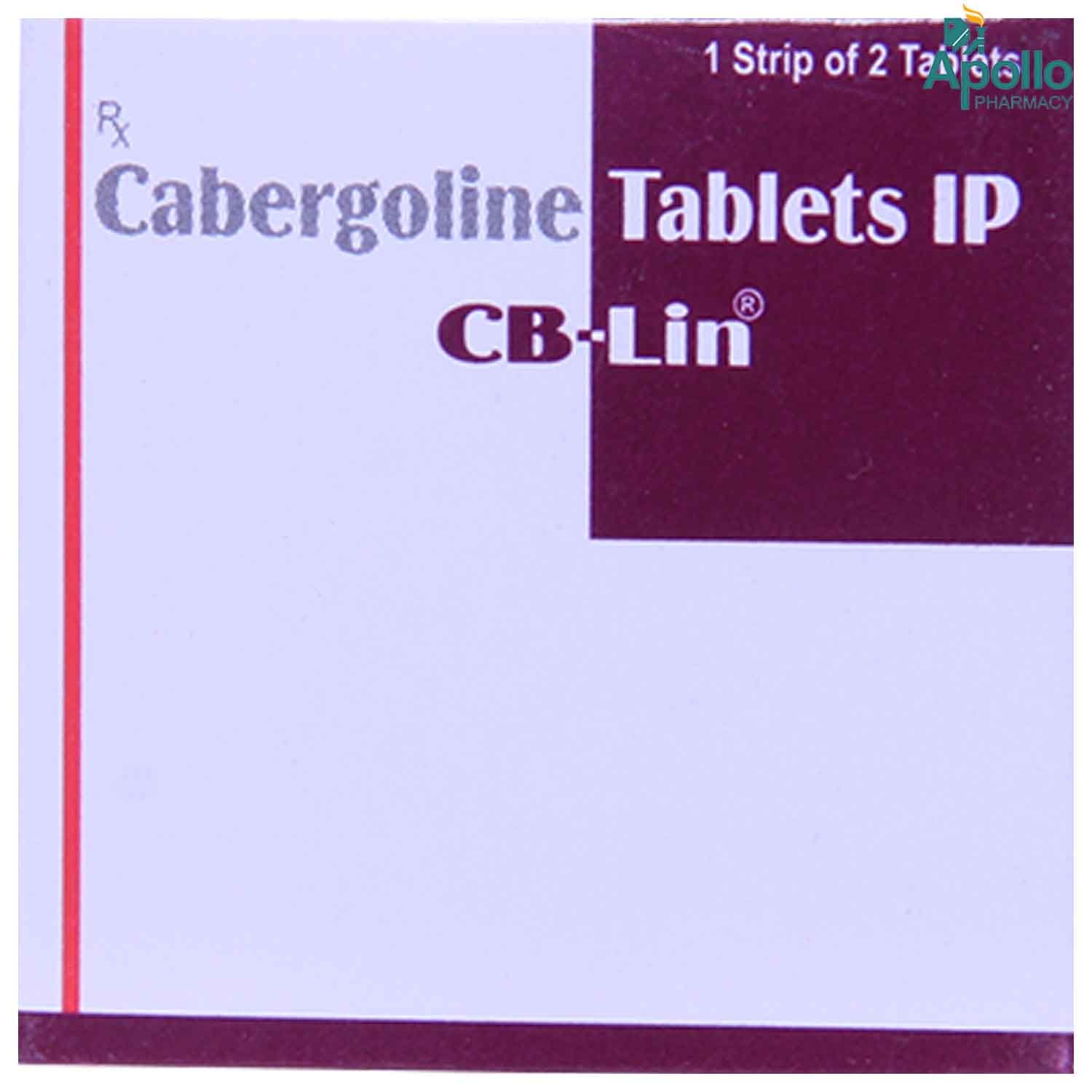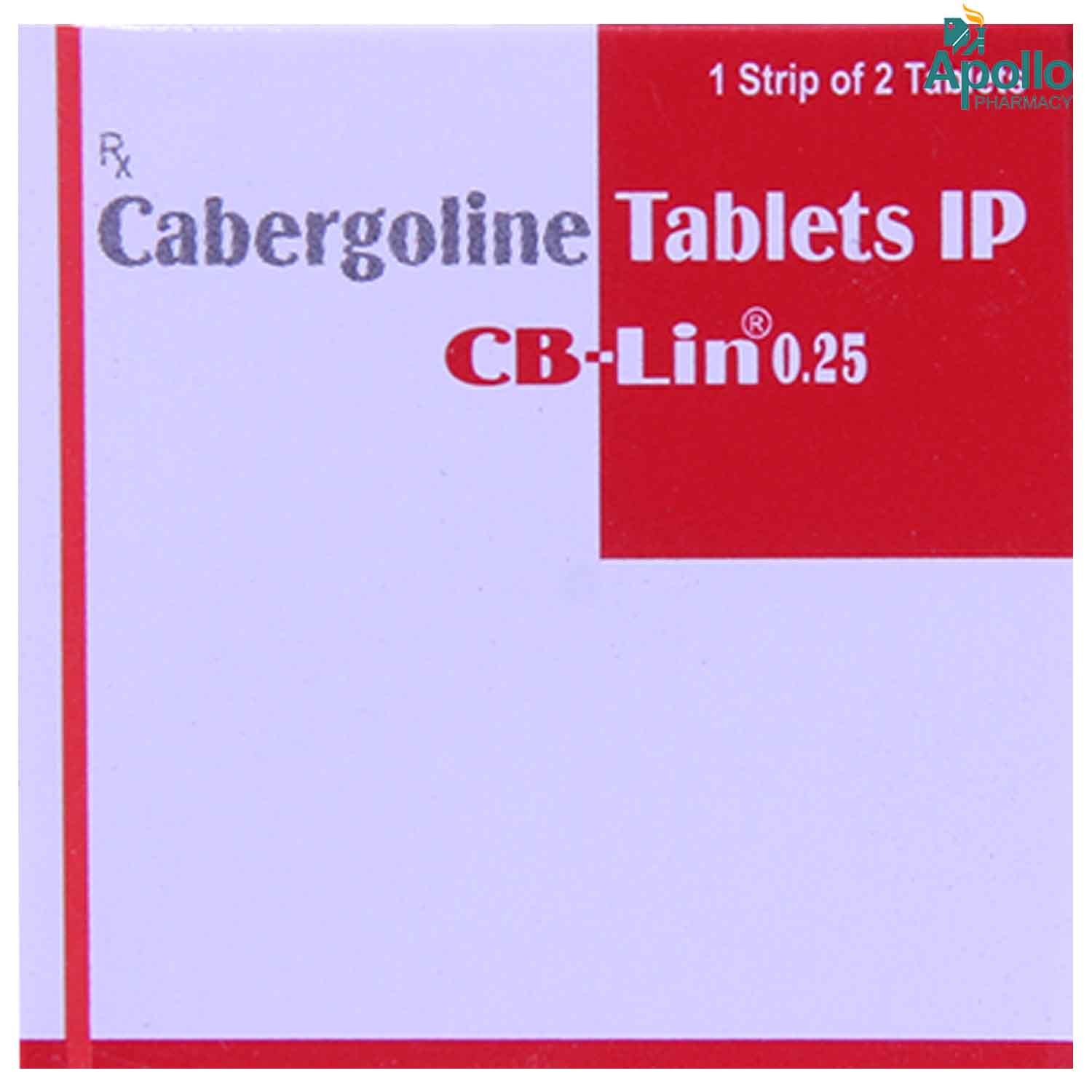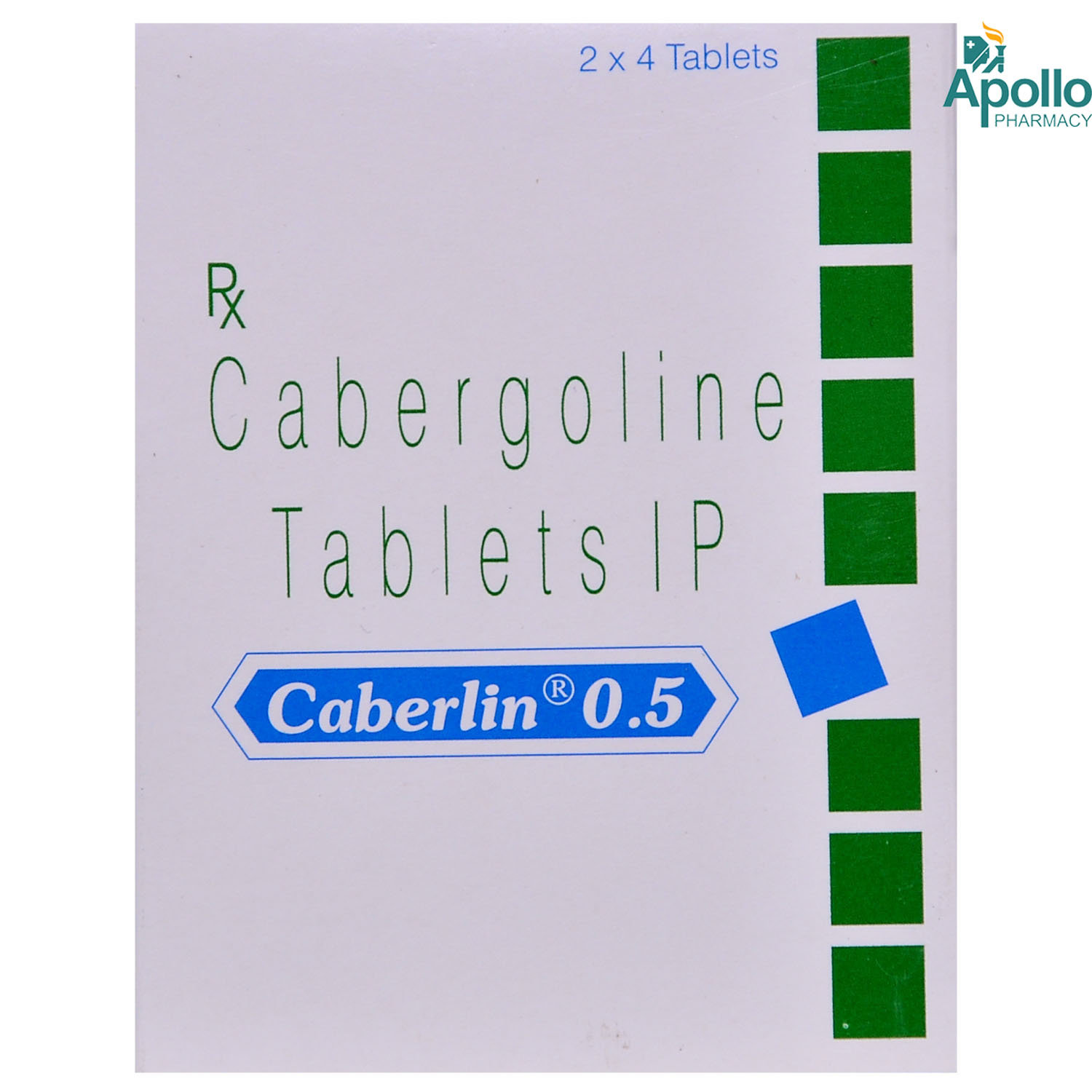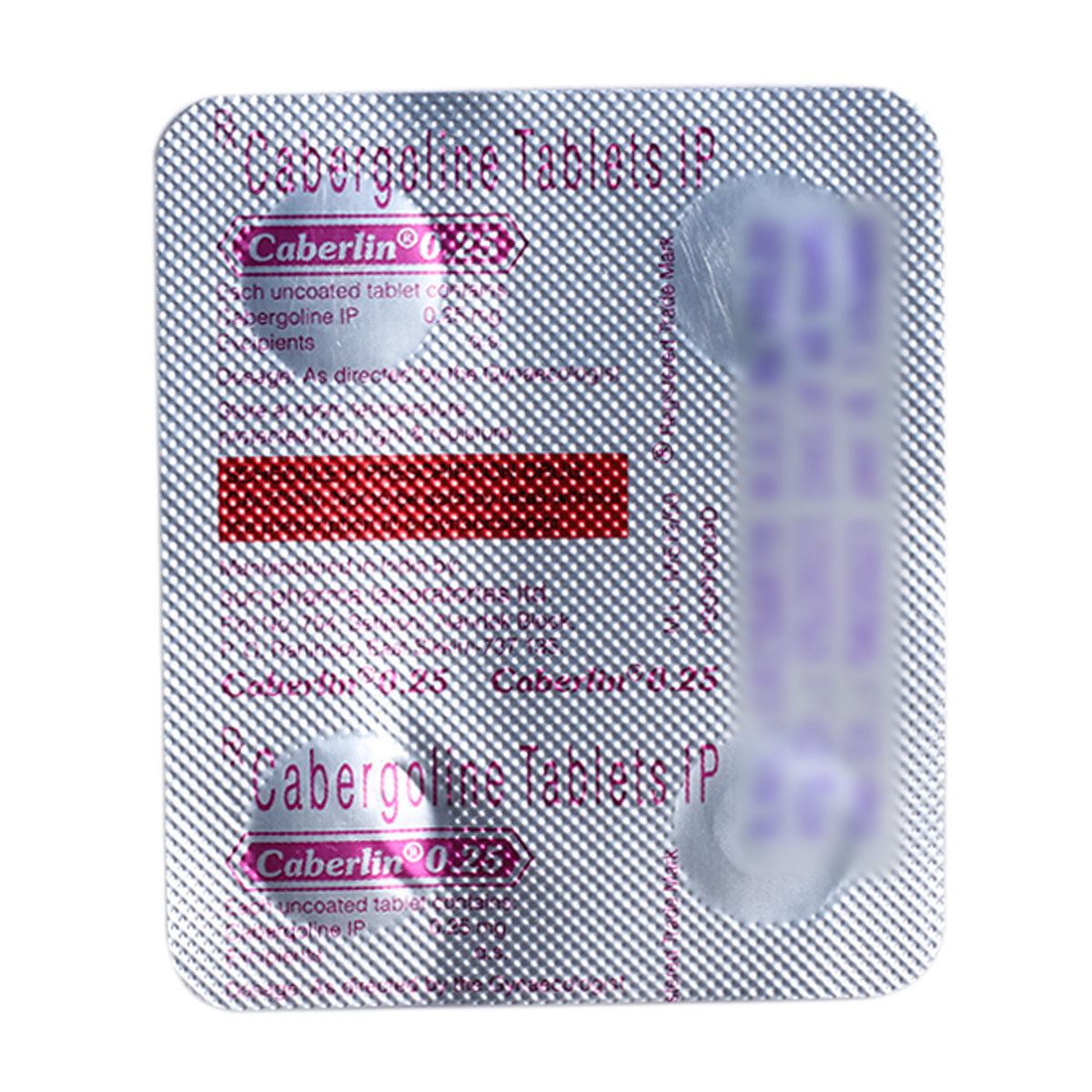Cabergoline
About Cabergoline
Cabergoline is used to treat hyperprolactinemia (high levels of prolactin, a natural substance that allows breast development and milk production in women). Besides this, it can also be used to treat other conditions caused by hormonal disruption that can lead to the production of high levels of prolactin.
Cabergoline contains cabergoline, which works by mimicking the action of dopamine. Thereby decreases the amount of prolactin in the body. It helps stop breast milk production soon after stillbirth, abortion, miscarriage, or even after delivery if you do not want to breastfeed your baby once you have started.
In some cases, you may experience blurred vision, drowsiness, constipation, vomiting, dizziness, headache, and fatigue. Most of these side effects are temporary, do not require medical attention, and gradually resolve over time. However, if the side effects are persistent, reach out to your doctor.
Do not take Cabergoline if you have uncontrolled hypertension, known hypersensitivity to ergot derivatives, or heart disease. Tell your doctor if you are pregnant, planning for pregnancy, breastfeeding, or having kidney/liver problems. Keep your doctor informed about your health condition and medications to prevent any interactions.
Uses of Cabergoline
Medicinal Benefits
- Cabergoline treats hyperprolactinemia (high prolactin levels) effectively.
- It helps stop or suppress breast milk production after stillbirth, abortion, miscarriage, or if breastfeeding is not desired after delivery.
- It restores normal menstrual cycles in women with irregular, infrequent, or absent periods caused by high prolactin levels.
- Cabergoline promotes ovulation and improves fertility in women with prolactin-related menstrual disturbances.
- It treats galactorrhoea (secretion of breast milk without pregnancy or breastfeeding).
- It is also useful in cases of idiopathic hyperprolactinemia (elevated prolactin levels with no known cause).
- Cabergoline manages high prolactin levels due to pituitary gland tumours in both men and women.
- It improves hormonal balance by mimicking dopamine and lowering prolactin production.
Directions for Use
- Take Cabergoline with or without food as advised by your doctor.
- It is advised to take Cabergoline two times a week; however, follow your doctor’s recommendation regarding the dosage and duration.
- Swallow Cabergoline as a whole with a glass of water.
- Do not crush, break, or chew it.
Storage
Side Effects of Cabergoline
- Drowsiness
- Nausea
- Headache
- Dizziness
- Vertigo
- Stomach Pain
- Indigestion
- Inflamed Stomach Lining
- Fatigue
- Lack of bodily strength
- Weakness
- Constipation
- Blurred Vision
- Low Blood Pressure
- Breast Pain
- Depression
- Sleep Disturbances
- Excessive daytime drowsiness/Sleepiness
- Vomiting
- Hot Flushes
Drug Warnings
- Cabergoline should not be taken if you are allergic to dopamine agonists or any of the ingredients of Cabergoline.
- Do not take Cabergoline if you have ever had uncontrolled hypertension, known hypersensitivity to ergot derivatives or heart disease, as it is known to contraindicate.
- Tell your doctor if you are pregnant, planning pregnancy, breastfeeding, or having kidney or liver problems.
- Please inform your doctor about all the other medications you are taking, as they might affect how Cabergoline works.
- Cabergoline should not be used by females below the age of 16 years.
- Try other forms of contraception, as hormonal conditions may not be effective.
- Regular blood pressure monitoring is required while you take Cabergoline.
- Inform your doctor if you are pregnant, breastfeeding, taking any other medicines or have pre-existing medical conditions.
Drug Interactions
Drug-Drug Interactions: This medicine may interact with medications used to treat mental illness (chlorpromazine, haloperidol), nausea and vomiting (domperidone, metoclopramide, clopramide), drugs for Parkinson’s disease, medicines for severe migraine headaches (bromocriptine, ergotamine, dihydroergotamine), antibiotics (erythromycin), and schizophrenia (phenothiazines, thioxanthene).
Drug-Food Interactions: No interactions found.
Drug-Disease Interactions: Inform your doctor if you have had high blood pressure, heart disease, a kidney or liver problem, or a mental illness.
Drug-Drug Interactions Checker List:
Safety Advice
Alcohol
cautionCabergoline is known to cause dizziness. So, intake of alcohol along with Cabergoline should not be done.
Pregnancy
cautionIf you are pregnant, think you might be pregnant or intend to have a kid, ask your doctor for advice before taking Cabergoline. You should also be careful not to get pregnant for at least one month after you stop taking this drug. If you become pregnant while taking Cabergoline, stop taking Cabergoline and inform your doctor, who will monitor your pregnancy, as Cabergoline can result in congenital abnormalities if you use it during pregnancy.
Breast Feeding
cautionCabergoline will stop you from producing milk for your baby, and you should not take this medicine if you plan to breastfeed.
Driving
cautionCabergoline is known to cause dizziness. So, driving or any machinery which requires concentration should be avoided.
Liver
cautionCabergoline to be taken with caution, especially if you have a history of Liver diseases/conditions. The dose may have to be adjusted by your doctor.
Kidney
cautionCabergoline to be taken with caution, especially if you have a history of Kidney diseases/conditions. The dose may have to be adjusted by your doctor.
Children
cautionCabergoline should not be used by females below the age of 16 years. It can be fatal.
Habit Forming
Diet & Lifestyle Advise
- Avoid alcoholic beverages as they may cause dehydration and may affect your sleep.
- Quit smoking as smoking increases the heart rate and may lead to a heart ailment.
- Including heart-healthy omega-3 fatty acid-containing food drinks in your daily diet. You can also use low-fat cooking oil like olive oil, soybean oil, canola oil, and coconut oil.
- Eat a healthy, balanced diet, including plenty of fluids, vegetables, proteins, and fat-free or low-fat dairy products.
- Regular exercise keeps the mind thoughtful and lowers your stress level, thus reducing the prolactin level.
Special Advise
Monitor your blood pressure, kidney, and liver function tests regularly.
Patients Concern
Disease/Condition Glossary
Hyperprolactinemia is a condition in which a person has higher-than-normal levels of the hormone prolactin in the blood. It causes infertility, decreased sex drive, and bone loss. In addition, women may have vaginal dryness, leading to pain during intercourse, problems with menstruation, having no periods or irregular periods, and breast milk production when not pregnant or nursing.
FAQs
Cabergoline used to treat hyperprolactinemia (high levels of prolactin, a natural substance that allows breast development and milk production in women).
Cabergoline works by mimicking the action of dopamine. Thereby decreases the amount of prolactin in the body.
If you miss a dose of Cabergoline, take the missed dose as soon as you remember it. However, if it is almost time for the next dose, do not take a double dose to make up for a missed one.
No, Cabergoline should not be taken on an empty stomach as it may cause nausea and vomiting. So, to avoid these side effects, take it with food or just after a meal.
Cabergoline contains cabergoline, a medication that treats high levels of prolactin in your blood.
Cabergoline is an oral medication taken by mouth with or without food as directed by your doctor. The dosage is based on your medical condition and response to the treatment.
Common side effects of Cabergoline may include blurred vision, drowsiness, constipation, vomiting, dizziness, headache, and fatigue. Most of these side effects are temporary, do not require medical attention, and gradually resolve over time. However, if the side effects are persistent, reach out to your doctor.









